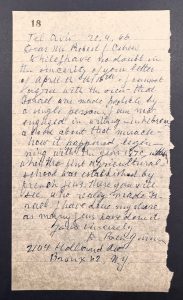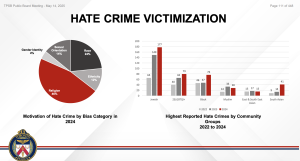 VAUGHAN, Ont. — The City of Vaughan will very likely consult with community members again before proceeding with zoning bylaw amendments regarding places of worship, Ward 5 Coun. Alan Shefman told The CJN last week.
VAUGHAN, Ont. — The City of Vaughan will very likely consult with community members again before proceeding with zoning bylaw amendments regarding places of worship, Ward 5 Coun. Alan Shefman told The CJN last week.
Alan Shefman
The consultations will probably take place in late fall, he added.
Shefman is planning to bring a motion to Vaughan Council to ask staff to do further consultation following a June 1 committee of the whole hearing that was open to the community, he told The CJN. People wanted to have more input, he added.
Having spoken informally with colleagues about his initiative, he said the plans were “pretty definite.”
Because of Thornhill’s large Jewish population, the bylaw in question – zoning bylaw 1-88 – affects a number of synagogues that are based in homes.
Shefman estimates that the population of his ward – bounded by Steeles Avenue, Yonge Street, Highway 407 and New Westminster Drive – is approximately 60 per cent Jewish. “It’s a vibrant Jewish community.”
He said he’s aware of at least three or four home-based synagogues in Thornhill.
In the past year, Shefman estimates, he has had 25 to 30 complaints about home-based congregations. Most are related to excessive noise and inconvenience, and/or safety concerns because of the number of parked cars.
“There are lots of places where minyans are held, usually a small group of people getting together and davening in someone’s house. That’s not the issue,” said Shefman. “The issue is when a group of people try to create a synagogue without the appropriate applications that are necessary.”
Among other requirements, he said, buildings have to be inspected for structural and fire safety to comply with current bylaws.
The proposed amendments would include an increase in minimum lot frontage from 20 metres to 30 metres, and a requirement that the lot abut a street with a minimum right-of-way of 26 metres or more.
Parking changes would be implemented through a separate zoning by-law incorporating approved recommendations, according to records from the June 1 hearing.
Changes could result in legal places of worship not conforming to the new bylaw.
But Shefman was skeptical that existing home-based shuls in Thornhill even meet the current requirements. “The ones that come to my mind have never fulfilled the requirements,” he said. However, he added, at least one is working with the city on changing that.
“What we really want is compliance with the bylaws,” Shefman said.
The bylaws exist for a reason, he said. “There are serious safety issues. At least a couple of times streets have been parked up on both sides. Fire vehicles would have difficulty manoeuvring into the street.”
The city can impose fines or turn to legal remedies in court, but generally it doesn’t have the power to shut down places of worship that don’t meet standards, Shefman said. In one case, he said, numerous fines have been imposed over the past 15 years, and city staff have made repairs.
In the last three or four years, Shefman said, the city has initiated a number of investigations concerning people who have moved into homes and done major renovations without informing the city, “claiming they were going to have a few study sessions there,” but then running newspaper ads seeking members to join their synagogues.
“As much as we want to support synagogues in the community, we also have to be aware of the needs of people living in the community who expect to live in a residential environment, and they can’t get into their driveway. Noise is happening. Bright lights are shining into their backyards.”
Rabbi Avrohom Bitterman of Ateres Mordechai – a congregation located in the basement of a house on Arnold Avenue – said only one neighbour has complained to him, about someone parking too close to a stop sign.
The congregation, which was established in February 2009, offers daily services and weekday classes. Between 30 and 40 people attend Shabbat morning services, and classes can have up to 20 students, although smaller groups of less than half a dozen are more typical, Rabbi Bitterman said.
“I would like to live at peace with everybody,” he said, adding that congregation founders were in touch with city officials when the shul was established.
A Thornhill resident who asked that her name not be used told The CJN that a Torah procession to a nearby home-based shtibl “disrupted the entire neighbourhood” because of the noise and number of parked cars.
“I don’t want to phone the city,” the woman said. “They’re my neighbours. I don’t want to start having a fight with them.”
Anyone who wants to provide input regarding the bylaw amendments concerning places of worship should contact Arto Tikiryan at the City of Vaughan, 905-832-8581, ext. 8212, and ask to be placed on the planning department’s list.






